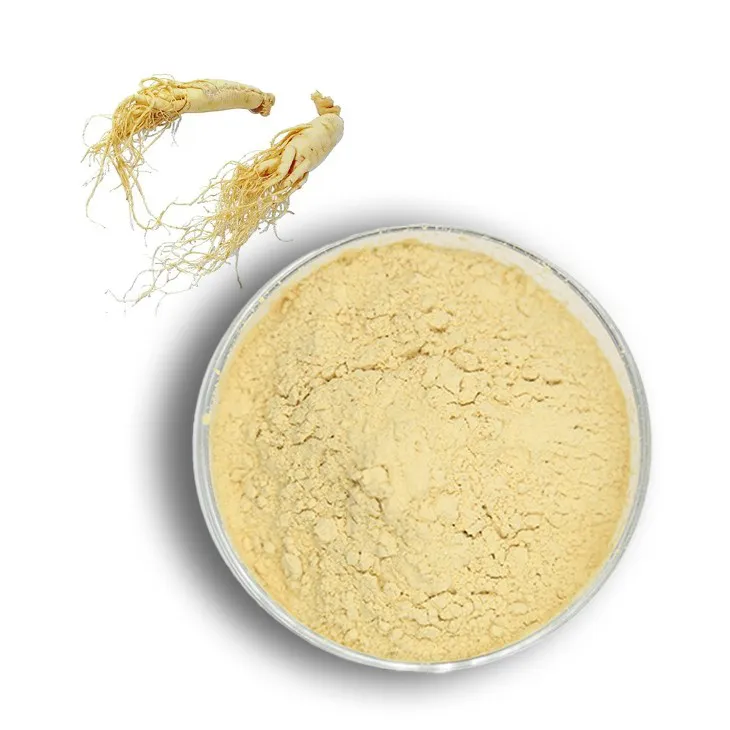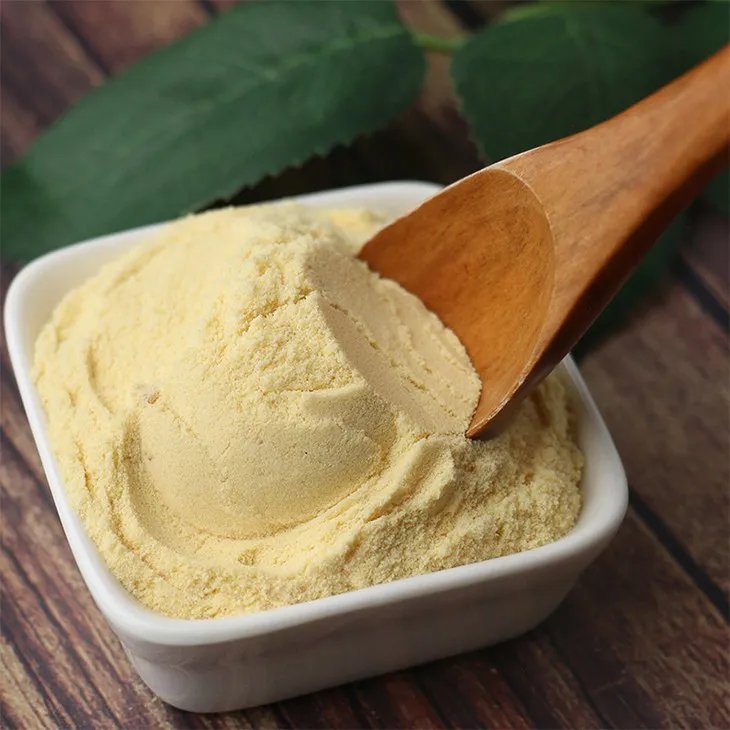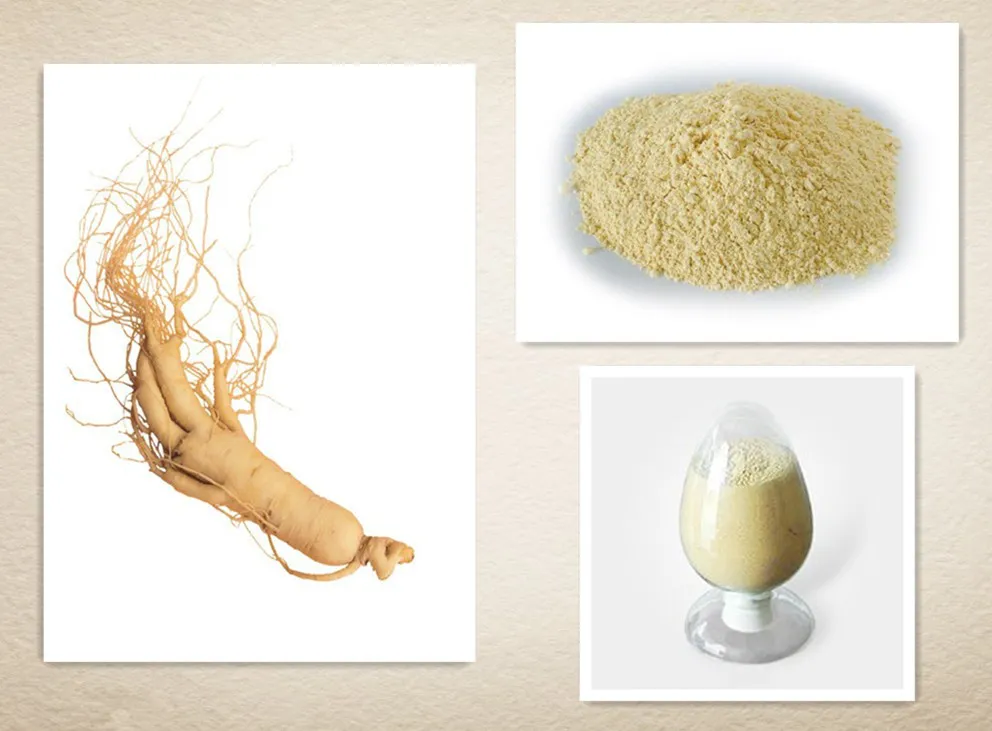- 0086-571-85302990
- sales@greenskybio.com
Wholesale Ginseng Root Extract Suppliers.
2024-11-29

1. Introduction to Ginseng Root Extract
Ginseng Root Extract is a remarkable natural substance that has been treasured for centuries in traditional medicine. It is derived from the roots of the ginseng plant, which is native to Asia and North America. This extract contains a rich blend of bioactive compounds, such as ginsenosides, which are responsible for its numerous health - promoting properties.
The potential applications of Ginseng Root Extract are extensive. It has been used in the field of health and wellness as a dietary supplement to boost energy, enhance cognitive function, and support the immune system. In the cosmetic industry, it is incorporated into skincare products for its antioxidant and anti - aging effects. Moreover, in the pharmaceutical realm, research is being conducted to explore its potential in treating various diseases.

2. The Role of Wholesale Suppliers
2.1 Offering Variety
One of the key contributions of wholesale ginseng root extract suppliers is the variety they provide. These suppliers understand that different industries have diverse requirements when it comes to ginseng root extract.
For instance, in the research sector, a high - purity ginseng root extract is often essential. Scientists need a pure form of the extract to conduct accurate experiments and studies on its biological activities. This may involve in - depth analysis of the individual ginsenosides and their interactions with cells and biological pathways.
On the other hand, for the mass - market dietary supplement industry, a more cost - effective option is usually more desirable. This allows manufacturers to produce affordable products that can reach a wider consumer base. Wholesale suppliers are able to source and offer different grades of the extract to meet these varying needs.
2.2 Quality Assurance
Quality assurance is of utmost importance for wholesale ginseng root extract suppliers. They are committed to providing products that meet the highest standards.
Suppliers conduct rigorous testing procedures. This includes checking for contaminants such as heavy metals, pesticides, and microbial organisms. These contaminants can pose serious risks to human health if present in the extract. For example, high levels of heavy metals like lead or mercury can have toxic effects on the body.
They also verify the concentration of active compounds, particularly the ginsenosides. The potency of the ginseng root extract depends on the amount of these active ingredients. By accurately measuring and ensuring the correct concentration, suppliers can guarantee the effectiveness of the product.
Furthermore, these suppliers ensure compliance with international standards. This is crucial for international trade as different countries may have specific regulations regarding the quality and safety of herbal extracts. For example, in the European Union, there are strict regulations on the purity and labeling of dietary supplements containing ginseng root extract.

3. Connecting Growers and End - Users
3.1 Negotiating with Growers
Wholesale suppliers play a vital role as an intermediary between ginseng growers and end - users. They have the expertise and market knowledge to negotiate favorable terms with growers.
By establishing good relationships with growers, suppliers can secure a stable supply of high - quality ginseng roots. They can negotiate on aspects such as price, quantity, and quality control. For example, they may be able to obtain a lower price per unit of ginseng root by agreeing to purchase a large quantity over a long - term contract.
3.2 Offering Competitive Prices
The ability to negotiate with growers enables wholesale suppliers to offer competitive prices to their clients. This is especially beneficial for end - user industries that are cost - sensitive.
For small - to - medium - sized dietary supplement manufacturers, for example, getting a competitive price on ginseng root extract can make a significant difference in their profit margins. It allows them to price their products competitively in the market while still maintaining quality.
3.3 Providing Market Insights
Wholesale suppliers also act as a valuable source of market insights. They have a broad view of the ginseng root extract market, including trends in supply and demand, emerging applications, and regulatory changes.
For growers, these insights can help them make informed decisions about their cultivation practices. For example, if suppliers notice an increasing demand for organically grown ginseng root extract in the international market, they can inform growers about this trend. Growers can then consider converting to organic farming methods to meet this demand and potentially increase their profits.
For end - use industries, market insights from suppliers can guide product development and marketing strategies. For instance, if a new research study shows a potential application of ginseng root extract in the treatment of a particular skin condition, cosmetic companies can use this information to develop new skincare products. Suppliers can also provide information on competitor products and pricing, helping end - users to position their products effectively in the market.
4. Sourcing and Production Processes
4.1 Sourcing of Ginseng Roots
Wholesale suppliers have to ensure a reliable source of ginseng roots. Ginseng is a slow - growing plant, and its cultivation requires specific environmental conditions. Suppliers may source ginseng roots from different regions, depending on the variety and quality they seek.
Some suppliers may prefer Asian ginseng (Panax ginseng), which is known for its high ginsenoside content. This type of ginseng is mainly cultivated in countries like South Korea and China. Others may also consider American ginseng (Panax quinquefolius), which has its own unique properties and is grown in North America.
When sourcing, suppliers need to consider factors such as the sustainability of the harvest. Over - harvesting can lead to the depletion of wild ginseng populations, which is a significant concern. Therefore, many suppliers are increasingly turning to sustainably cultivated ginseng sources.
4.2 Extraction Methods
The extraction process of ginseng root extract is a crucial step in ensuring the quality of the final product. There are several extraction methods available, and wholesale suppliers need to choose the most appropriate one.
One common method is ethanol extraction. Ethanol is used to dissolve the bioactive compounds from the ginseng roots. This method is effective in extracting a wide range of ginsenosides. However, it requires careful control of the ethanol concentration and extraction time to ensure optimal results.
Another method is water extraction. Water extraction is a more natural and milder approach, which may be preferred for certain applications where a more "natural" product is desired. However, it may not be as efficient in extracting all the active compounds as ethanol extraction.
Suppliers also need to consider the post - extraction processing steps. This includes filtration to remove impurities and concentration to increase the potency of the extract. These steps are essential for producing a high - quality ginseng root extract.

5. Challenges Faced by Wholesale Suppliers
5.1 Quality Control Challenges
Despite their best efforts, wholesale ginseng root extract suppliers face several challenges in quality control.
The natural variability of ginseng plants can make it difficult to ensure consistent quality. Different batches of ginseng roots may have slightly different ginsenoside profiles due to factors such as soil conditions, climate, and cultivation methods. Suppliers need to implement strict quality control measures to minimize this variability.
Another challenge is the detection of low - level contaminants. Some contaminants may be present in very small amounts but can still pose a risk to human health. Advanced analytical techniques are required to detect these contaminants accurately.
5.2 Market Volatility
The ginseng root extract market is subject to market volatility. Prices of ginseng roots can fluctuate significantly due to factors such as changes in supply and demand, weather conditions, and geopolitical events.
For example, a bad harvest season due to extreme weather can lead to a decrease in the supply of ginseng roots, causing prices to rise. This can be a challenge for wholesale suppliers as they need to manage their costs while still providing competitive prices to their clients.
Moreover, changes in consumer preferences and emerging trends can also impact the market. For instance, if a new type of ginseng - based product becomes popular, the demand for specific grades of ginseng root extract may change rapidly.
5.3 Regulatory Compliance
As mentioned earlier, regulatory compliance is a crucial aspect for wholesale suppliers. However, keeping up with the ever - changing regulatory landscape can be a challenge.
Different countries and regions may have different regulations regarding the production, labeling, and marketing of ginseng root extract. For example, some countries may require specific labeling of the origin of the ginseng roots, the extraction method used, and the concentration of active compounds. Suppliers need to stay informed about these regulations and ensure that their products meet all the requirements.

6. Future Outlook for Wholesale Ginseng Root Extract Suppliers
The future looks promising for wholesale ginseng root extract suppliers, despite the challenges they face.
With the growing interest in natural products and alternative medicine, the demand for ginseng root extract is expected to increase. Consumers are becoming more health - conscious and are actively seeking products that contain natural ingredients with proven health benefits.
Advances in extraction and analytical techniques will also benefit suppliers. New extraction methods may be developed that are more efficient and environmentally friendly, allowing for the production of higher - quality ginseng root extract at a lower cost.
Furthermore, as the global market for ginseng root extract expands, there will be more opportunities for suppliers to collaborate with international partners. This can lead to increased market share and greater access to new markets.
FAQ:
What are the main factors to consider when choosing a wholesale ginseng root extract supplier?
When choosing a wholesale ginseng root extract supplier, several factors should be considered. Firstly, quality is crucial. This includes checking if they perform strict testing for contaminants and verify the concentration of active compounds. Secondly, the variety of products they offer matters. Different grades of the extract for various applications, such as research or dietary supplements, should be available. Price is also an important factor, and a good supplier can offer competitive prices due to their ability to negotiate with growers. Additionally, their market insights and reputation in the industry are worth considering.
How do wholesale ginseng root extract suppliers ensure the quality of their products?
Wholesale suppliers ensure the quality of ginseng root extract products through rigorous testing procedures. They check for contaminants to make sure the extract is pure. They also verify the concentration of active compounds in the extract. These suppliers must comply with international standards, which helps to guarantee the quality of the products they supply.
Can wholesale suppliers of ginseng root extract provide customized products?
Some wholesale suppliers of ginseng root extract may be able to provide customized products. Depending on the needs of the customer, such as specific purity levels or packaging requirements, they may have the capacity to adjust their production or sourcing. However, this may also depend on factors like the availability of raw materials and the cost - effectiveness of customization.
What industries typically buy from wholesale ginseng root extract suppliers?
The dietary supplement industry is a major customer of wholesale ginseng root extract suppliers, as ginseng root extract is commonly used in supplements. The research industry also purchases from these suppliers, especially when a high - purity extract is required for scientific studies. Additionally, the cosmetics and pharmaceutical industries may also source ginseng root extract from wholesale suppliers for use in their products.
How do wholesale suppliers of ginseng root extract influence the price in the market?
Wholesale suppliers of ginseng root extract can influence the market price in several ways. They have the ability to negotiate favorable terms with growers, which can lower their procurement costs. By having lower costs, they can offer more competitive prices to their clients. Their market insights also play a role. If they anticipate changes in supply or demand, they can adjust their pricing strategies accordingly. Additionally, competition among wholesale suppliers can also drive prices down in the market.
Related literature
- The Benefits and Quality Control of Ginseng Root Extract"
- "Ginseng Root Extract in the Dietary Supplement Industry: A Comprehensive Review"
- "Wholesale Suppliers and the Global Ginseng Market: Trends and Opportunities"
- ▶ Hesperidin
- ▶ Citrus Bioflavonoids
- ▶ Plant Extract
- ▶ lycopene
- ▶ Diosmin
- ▶ Grape seed extract
- ▶ Sea buckthorn Juice Powder
- ▶ Fruit Juice Powder
- ▶ Hops Extract
- ▶ Artichoke Extract
- ▶ Mushroom extract
- ▶ Astaxanthin
- ▶ Green Tea Extract
- ▶ Curcumin
- ▶ Horse Chestnut Extract
- ▶ Other Product
- ▶ Boswellia Serrata Extract
- ▶ Resveratrol
- ▶ Marigold Extract
- ▶ Grape Leaf Extract
- ▶ New Product
- ▶ Aminolevulinic acid
- ▶ Cranberry Extract
- ▶ Red Yeast Rice
- ▶ Red Wine Extract
-
Kidney Bean Extract
2024-11-29
-
Carrageenan Extract Powder
2024-11-29
-
Aguaje Extract
2024-11-29
-
Mango flavored powder
2024-11-29
-
Sea buckthorn Juice Powder
2024-11-29
-
Panax Ginseng Leaf Extract
2024-11-29
-
Saponin Extract
2024-11-29
-
Fenugreek Extract Powder
2024-11-29
-
Horse Chestnut Extract
2024-11-29
-
Sugarcane Extract
2024-11-29





















